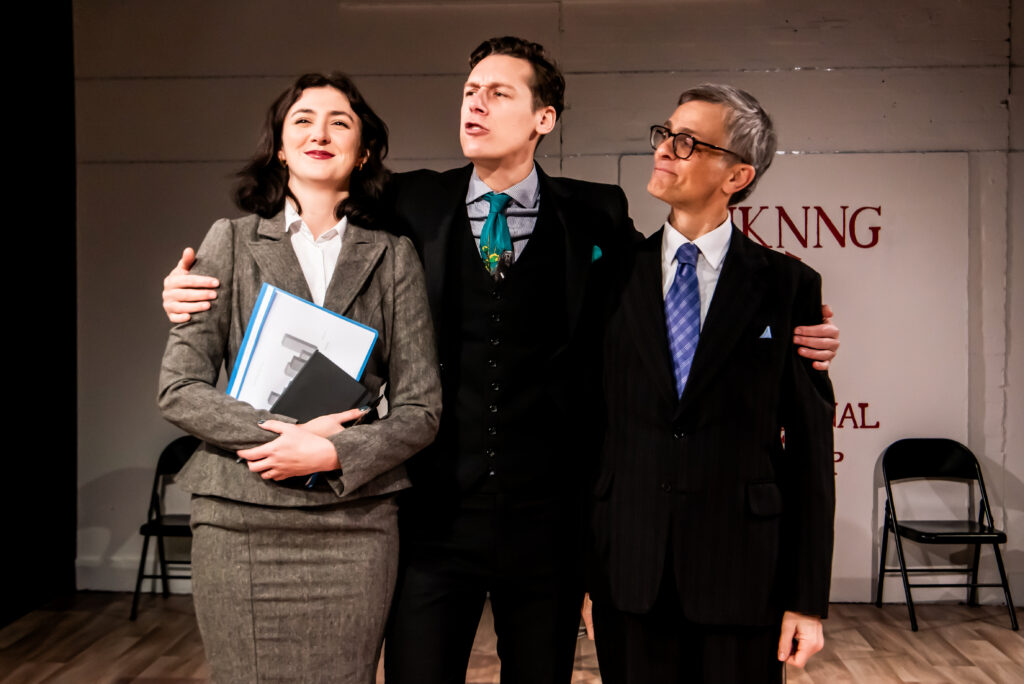Southwark Playhouse, London – until 30 March 2024
Reviewed by Chelsea Kania
5*****
An excellent show
As print journalism plummets and anxieties of a digital revolution loom, the ugly true colours of ‘90’s era business people are laid bare in London Zoo. Yet in 2024, it’s all too familiar.
This behind-the-scenes corporate satire dips into the perspective of senior newspaper exec Arabella, played by Natalie Lauren (Close to Me), to wittily and critically explore the birth of the modern workplace under pressure—and the prejudices exposed with it. Writer and director Farine Clarke draws from a well of personal insight, namely her early career as a doctor, time in publishing, and board roles in public and private sectors; it’s clearly a deep well.
Set in a time before the term “unconscious bias” was as common as clickbait, the characters in London Zoo are confidently—thus disturbingly—innocent in their judgements and deceits. “It’s about people,” Clarke says, “how they feel, interact and at times manipulate to get their way […] we all harbour our own subtle prejudices which we need to expose and discuss.”
The production is advised by film, theatre and television actress, Linda Marlowe (EastEnders), and the cast includes Harris Vaughan (The Nevers) as Christian, Simon Furness (Wednesday) as Charles, Odimegwu Okoye as Kelvin, Anirban Roy as Sunil, and Dan Saski as Alex.
London Zoo is serious business but Clarke serves her points with sharp humour. Another highlight is Lauren’s whip smart Arabella, the token female hire whose observations would be considered “woke” by today’s standards. But with none of the 21st century freedom to express them, her murmured sarcasm and professional restraint are as painful as they are relatable. And I mean that literally; as a former token female executive myself, I found her performance pretty PTSD-inducing. I also felt seen.
The play culminates with a dark twist befitting of good satire, although it peaks so abruptly that I didn’t get to stew in it for as long as I’d have liked. But in general, Clarke’s nuanced writing is a real triumph.
“There’s no point in doing this on a soapbox,” she says. “Far better to use comedy to help us laugh at ourselves while still questioning if we can change for the better.”
As the show ends and my mind drifts to hysteria over AI, machine learning and fluctuating globalisation, I’m left wondering: with ample pressure cookers ahead, which human prejudices are yet to surface—and will the current ones ever really have a chance to leave us? Whatever the future, I hope Clarke is around to help us face ourselves.

